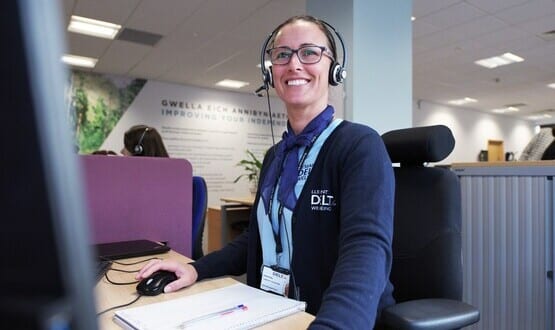Telehealth benefits realised
- 15 February 2013

A Yorkshire project proves the cost benefits of telehealth, says a report on the scheme by think-tank 2020health.
The report evaluates the Yorkshire and the Humber Telehealth Hub, which was set up in 2011 as a partnership between Airedale NHS Foundation Trust, the University of Hull and South West Yorkshire Partnership NHS Foundation Trust.
The aim was to reduce hospital admissions and prove cost benefits. Despite struggles with clinical engagement and very low uptake in some areas, more than 2,000 patients were enrolled.
In Hull, an pre-existing telemonitoring service for heart failure patients was extended with the aim to reach other telemonitoring projects around the east of the region, and offer the triage service to other disease groups.
During the year, Hull managed 283 deployments. The service was also extended to NHS East Riding of Yorkshire and in total 620 patients enrolled.
The report says that both these services had been evaluated and found to yield financial return on investment.
“Based on a savings assumption of £2,000 per averted admission, and (taking account of total service costs) this represents a return on investment of 48%. User cases and evidence base still emerging, but show benefits from avoided admissions and care closer to home."
The author of the report, John Cruickshank, told eHealth Insider he had been very impressed with what he saw. “There’s some pretty clear evidence of cost benefits," he said.
Cruickshank added that the project had shown more cost benefits than had been shown by the Whole System Demonstrator project.
This was a major, three site telehealth project set up by the Department of Health to make the case for the technology, which has so far issued only a limited number of contested reports.
“We’re on course to show improvement, and that can be built upon,” he said.
While the hub managed to enrol more than 2,100 patients throughout the year of the scheme, the report says the hub was “overly ambitious, evidenced by a relatively low uptake of the services beyond the partners.”
In Sheffield, a telecoaching service, which provided telephone based coaching to patients with long term conditions, was set to be rolled out to 250 patients. Only five were recruited and the service ran for three months.
The same service was offered to NHS East Riding of Yorkshire GP practices, but only three accepted, resulting in 50 patients enrolled in the scheme.
Cruickshank said one of the problems was that getting patients on board was time consuming.
He added that although the project overall had been a success, there was still a problem with telehealth pilots only producing small numbers.
“The point of ‘pilotitis’ is a fair one. The NHS has been stuck looking at small numbers and pilots,” he said.
“There’s a glass ceiling to be broken through, the pilots become stuck at a few hundred patients.”
The report aims to highlight lessons learnt and make recommendations for the future in context of the 3millionlives campaign, which the government has set up to ‘kickstart’ the industry.
Cruickshank said the government needed to ‘join up thinking’ and that different projects such as 3millionlives and electronic records were all aiming for the same thing.
He believed that introducing tariffs and incentives would encourage organisations to engage in telehealth projects.
“Unless there’s a mandate it will only happen in bit and pieces, but it’s too early for that.
"However, organisations should at least have to show that they have looked at and considered telehealth. If you get the right incentives in place, it will start to come about.”
The telehealth hub was set up by NHS Yorkshire and Humber with £900,000 funding from the Regional Innovation Fund.




